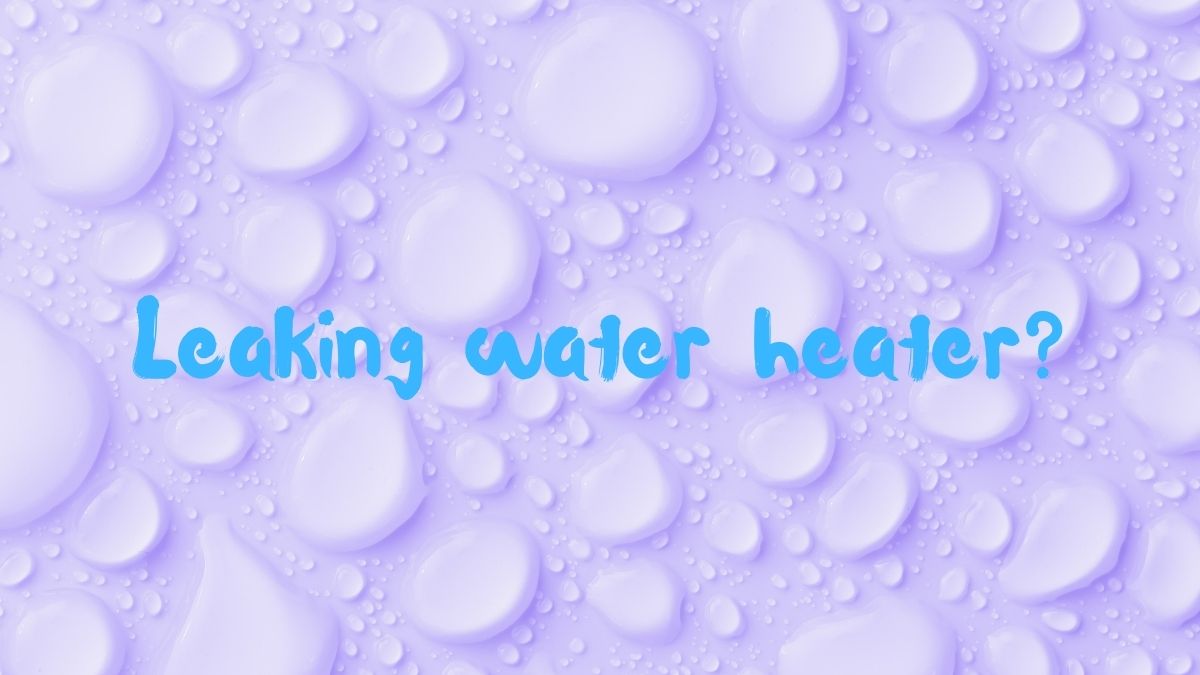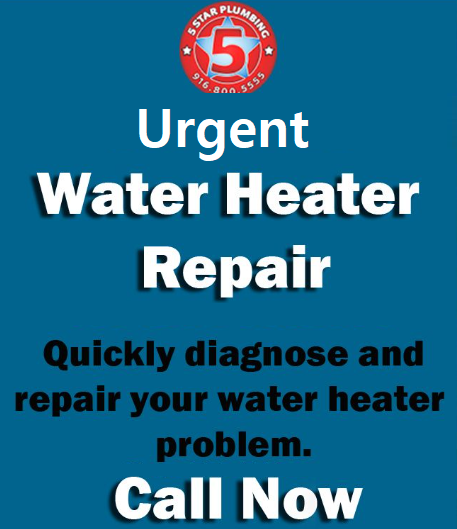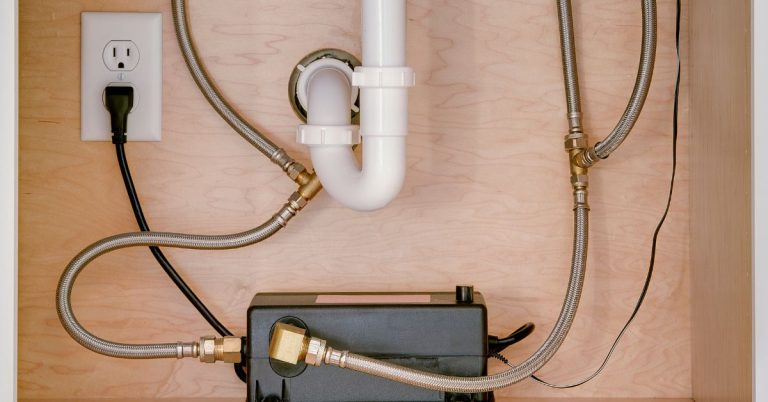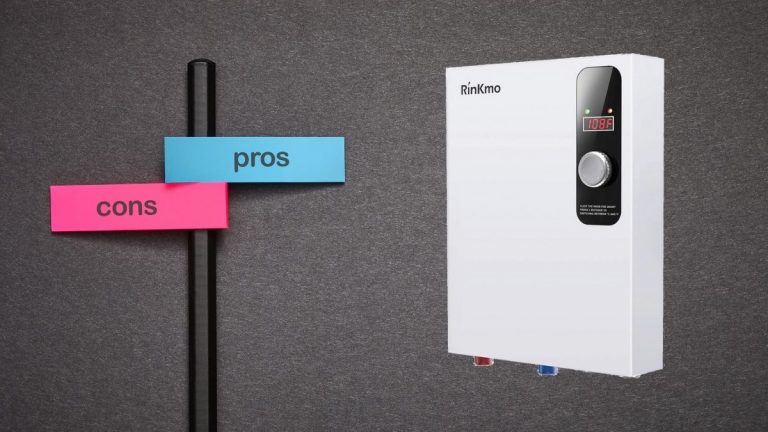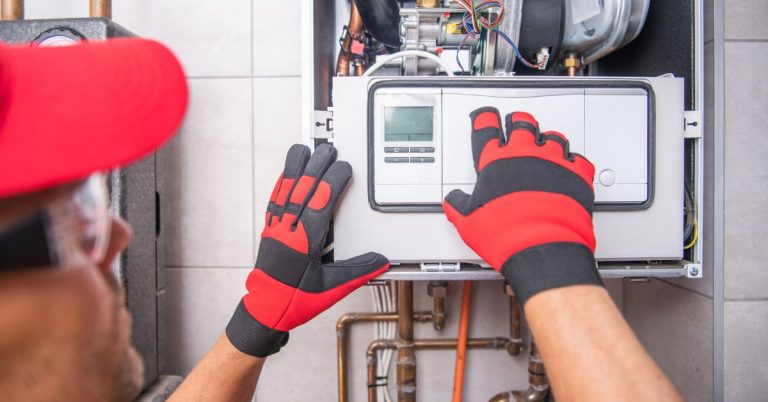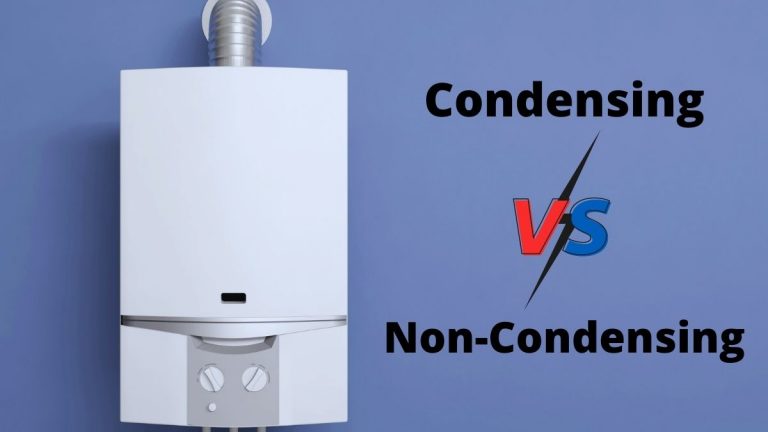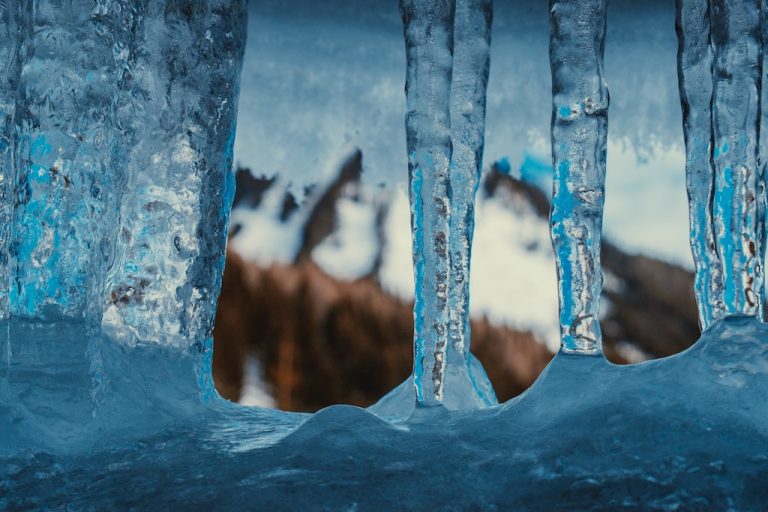5 Step Guide: What To Do When Hot Water Heater is Leaking
A water heater is one of the most essential appliances in our households. Hidden far away in the garage or basement, it provides us with its services all and every day. But what to do when this hot water heater leaks?
If your water heater is leaking, then first find out the source of the leak. Switch off the power supply and touch your fingers on the different connections on the water heater for moisture like drain valve, T&P valve. If your water heater is leaking from the inner tank then it needs to be replaced.
A leaking water heater can mean a lot of things like excessive pressure buildup inside the tank, loose connections, faulty valves, and leakage in the inner tank itself. Some of these problems can be fixed simply by tightening the connections, changing valves, while rarely it also requires complete unit replacement.
Water heaters, like any other appliances, are prone to depreciation and aging. A typical tank water heater lasts approx 8-12 years if maintained regularly. If your water heater has reached its age and leaking then it’s probably best to buy a new water heater.
That said, in this guide, we are going to briefly discuss what to do when your hot water heater is leaking.
So let’s get started.
5 Steps to do when your hot water heater is leaking?
Before proceeding with this troubleshooting guide it’s best for your safety to switch off the power supply to the water heater from the breaker panel. Flip the breaker labeled as water heater to OFF position. If no labeling is there then shut off the main supply.
1. Check cold water inlet and hot water outlet lines
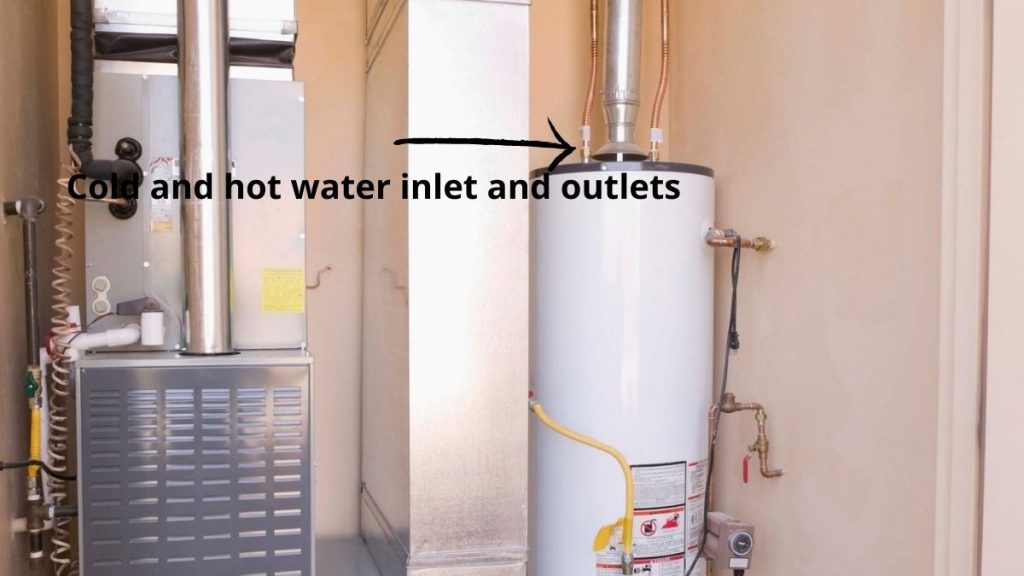
It’s best to start inspection from the top of the tank. Look if you find any water on the top of the tank. If yes, then it’s most likely loose pipe connections.
Check for the cold water inlet and hot water outlet pipelines. Usually, they are also labeled with blue and red colors. Touch with your dry hands on the pipe and its connections for any moisture.
If you find any moisture on any connections then most likely it’s loose and all you will need to do is tighten the connection with the help of a wrench. Otherwise, move to the next step.
2. Check pressure relief valve or overflow pipe

The temperature and pressure relief valve is an important safety mechanism for your water heater. It has a discharge or also called overflow pipe connected to it that automatically releases and leaks water when the pressure inside is over 120PSI – which is dangerous. You can locate it at the top or side of the tank.
It prevents the tank from bursting or exploding.
Touch around the seem of the valve if there’s any moisture or leakage. Try to tighten it if it’s leaking or you need to replace the valve.
You can also put a finger inside the discharge pipe to find if there’s any moisture.
It’s normal for discharge pipe to leak water occasionally. However, if it’s leaking or dripping slowly all the time then the valve spring has most likely rusted and you need to change it.
If you plan to change the valve the then make sure you empty the tank first and roll some Teflon tape on the threads of the new pressure valve so it doesn’t leak.
3. Check up your drain valve
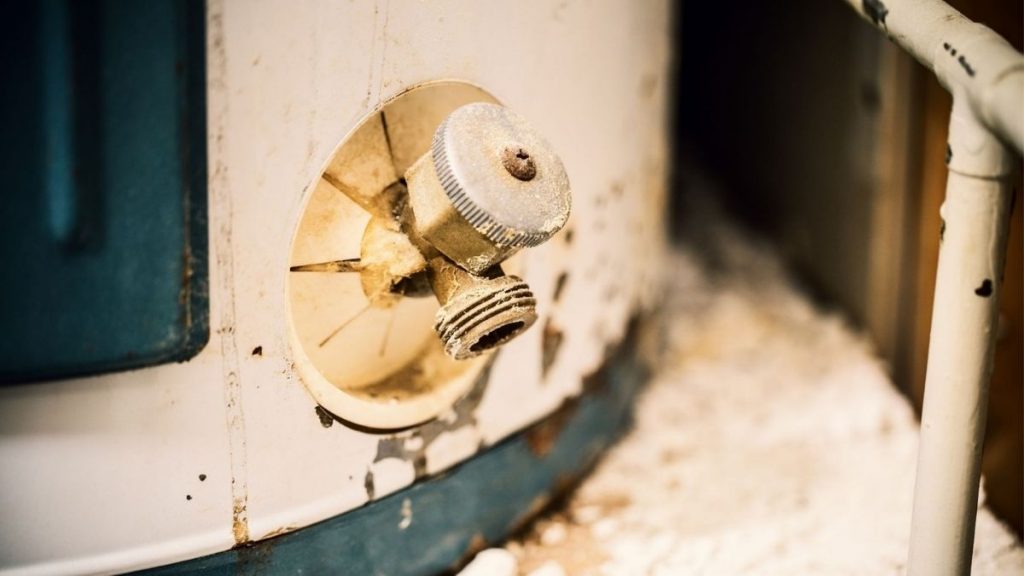
The drain valve can be located at the bottom of the tank. It’s used to drain, flush, and remove sediment buildup of the tank. Here’s the complete guide for the water heater flushing.
Most hot water heaters, however, come with a plastic drain valve that can crack or leak over time.
Now again, touch with your hand around the drain valve and see if you feel any moisture.
If there is moisture then it’s best replaced. Close the water inlet valve and empty the tank before replacement. Use a brass metal drain valve that provides better service.
4. Leaking element access panel
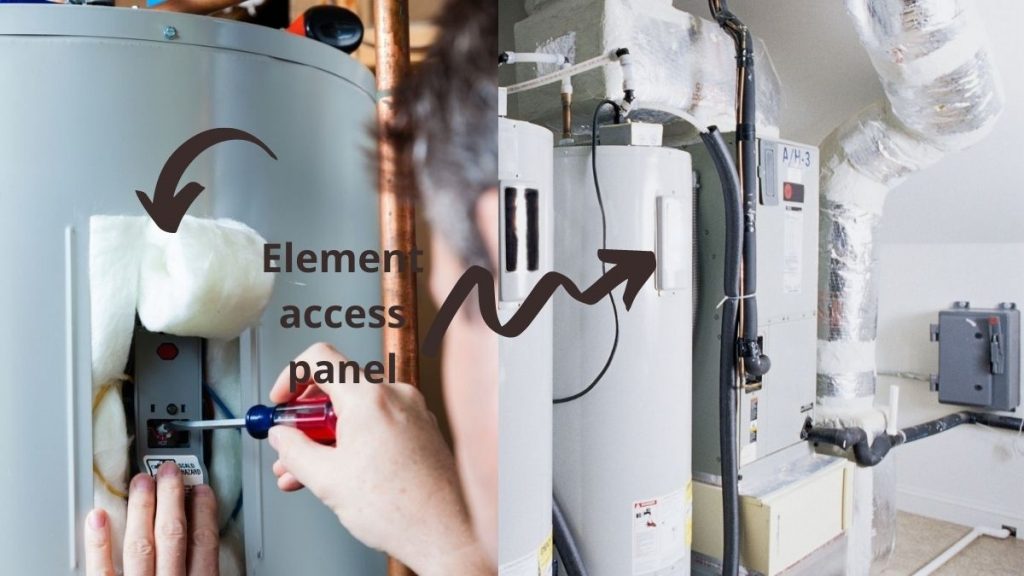
Water leaking from the element access panel is rare but can happen. It’s most likely due to elements not being fixed in place properly.
- Switch off the power supply and open the access panel with a screwdriver.
- Remove the insulation.
- Check from where exactly water is leaking.
- If it’s from the seam of the heating element then you will have to take it out, roll some Teflon tape on the thread, and then tight it back in place. But before you do any of that, make sure you close the cold water valve and drain the tank.
5. Leakage from the inner tank
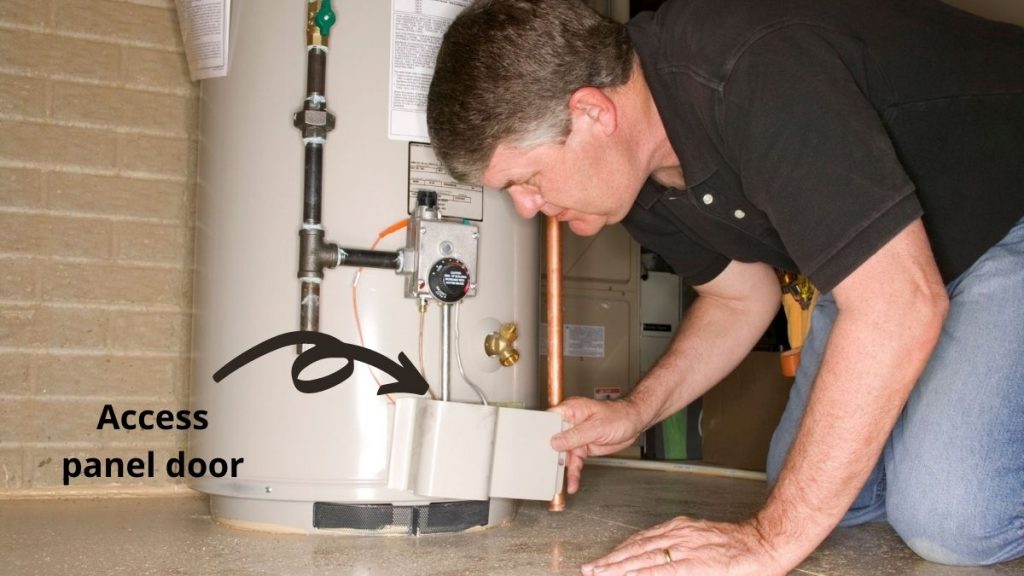
Open the big access panel door at the bottom of the tank with the help of a screwdriver. Touch the surrounding area if there’s moisture. And if there is, then it has internal tank leakage.
Water heaters will eventually leak from the inner tank if it’s aged or if you haven’t properly maintained and flushed it during its life cycle.
Unfortunately, this leakage can not be fixed and the only way around it is to replace the water heater.
You can buy some time to arrange the budget if the leakage is very low and have cement flooring. But eventually, you will have to replace it sooner than later. Check out the best condensing tankless water heaters here.
Similar: Your water heater making noises? Here’s the most likely cause
Related questions
Can I take a shower if my water heater is leaking?
Yes, it’s completely safe to take shower even if your water heater is leaking. However, you will want to investigate and fix the leakage before the leakage floods and does damage to your property.
Hot water heater leaking from bottom how long will it last?
It depends on how serious and big is leakage. Although it may look like the water heater is leaking from the bottom but it can be leakage from another part as well. For instance, your discharge pipe leaks water too as part of the safety mechanism. Inspect and find out the source and fix the leakage with the help of the above guide.
Is a leaking water heater dangerous?
Usually, it’s not dangerous if your water heater is leaking. However, if it’s the pressure relief valve that’s discharging water frequently then that means there’s excess pressure build-up inside the tank which can be dangerous.
Close the cold water valve going into the tank, switch off the tank’s power supply and call your plumber. Do not try to fix it yourself.
Conclusion
So that’s a wrap. Hopefully, you have a clue as to what to do when hot water heater is leaking. And I also hope that you were able to fix the issue yourself as a DIYer. However, if the issue doesn’t resolve or you aren’t able to diagnose the cause of the leak then it’s better left to the professional. Call a certified professional and get it resolved. And follow this water heater leakage prevention guide.

